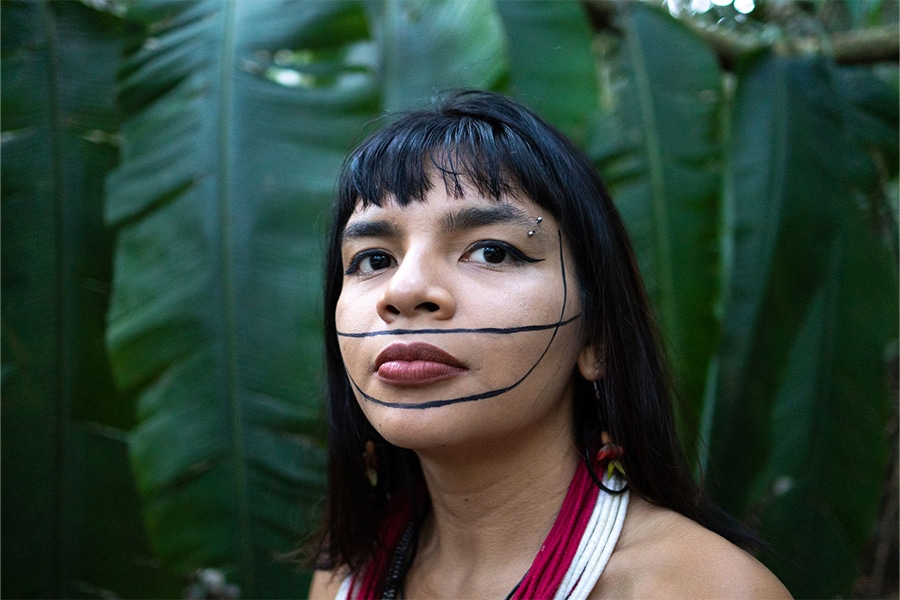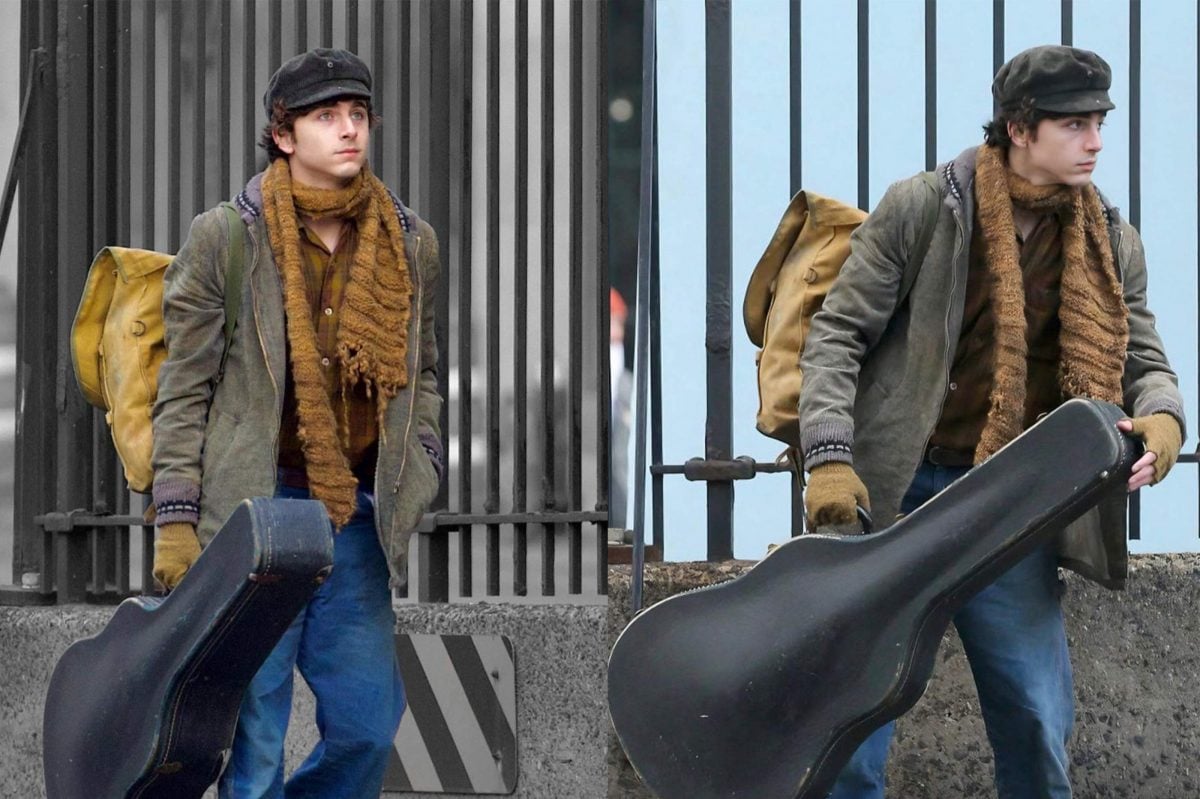
As a child you learn about the Amazon rainforest, with its anacondas and thick humidity. But nothing tops seeing it in the opening scene of The Territory. Ants hoist leaves three times their size above their bodies, while a shot cuts to two Indigenous children chasing each other through the lush undergrowth.
What you're seeing is Uru-Eu-Wau-Wau territory. A young tribal leader Bitaté sends a drone into the sky, and as it hovers above the canopy, it reveals that this part of the rainforest, almost 7000 square miles nestled deep in Brazil's Rondônia, is sandwiched between flattened scrub and ranches. From this height the earth looks sick.
Directed by Alex Pritz and produced by and with permission from the Uru-Eu-Wau-Wau people, The Territory tracks the ancestral owners, a community of less than 200 people, as they defend the land against illegal deforestation and landgrabbers. Shot across three years, beginning with the devastating election of Brazilian president Jair Bolsonaro, the film depicts the life-or-death stakes and offers unprecedented footage of the Amazon, some of which is shot by the Uru-Eu-Wau-Wau people themselves.
So far, The Territory has premiered at Sundance, collecting 16 different awards since its release. Executive producer on the film, the 25-year-old Indigenous climate activist, Txai Suruí, tells RUSSH she would have never thought the film would've received such traction. Better yet, is the fact that this story is an act of truth-telling, exposing the destruction of planet earth's lungs.
"I think film has a strong power," Suruí says. "I can tell you what's going on with us. But when you see it it's different. I think the power of cinema is it can touch your heart, you know? It's true our vision too. It's us behind the cameras and I think this is so strong."
Much of the film explores the tense relationship between the Uru-Eu-Wau-Wau community and the local farmers who hope to cordon off sections of the land for farming. I ask Txai why the filmmakers chose to focus on this perspective. "We decided with Alex [Pritz] that we needed to show the other side because the reality is not easy," she explains.
"The land-grabbers, they are our neighbours. Sometimes we go to school with their kids. It's more than a fight against the little farmers and Indigenous peoples, it's a systemic problem. We are talking about the systems that are eating the Indigenous peoples, eating the forest, eating the poor people too."
Suruí explains how the film was never intended to be an "us and them" narrative. Rather, she hoped it would lay bare the dicy reality of the situation, and in doing this, together people can conjure up a solution.
"They pit us against the other poor people. Who is winning with this? We need to think about that. Who is winning with our genocide? Who is winning with deforestation?"
There's much joy to be found in The Territory too. This element of the film was equally as important. "I think the beautiful thing about the film is that we are teaching about the Amazon," Suruí continues. "We're not showing just the bad things or the violence, but we are showing all the the richness too."
Watch the trailer to The Territory below, or see the film in-person as it plays in limited theatres across Australia and New Zealand, now.



